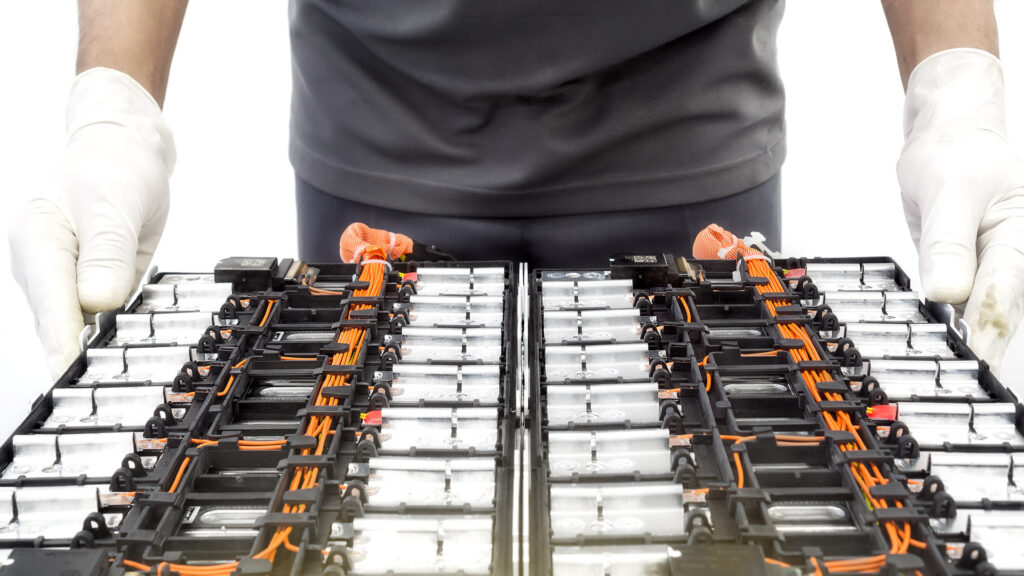You don’t have to search hard on the internet to find videos of genuine scientists and pyro-loving kids taking apart lithium-ion batteries of all shapes and sizes – just to film how explosive the chemical constituents can be. Estimates by recycling gurus like Ajay Kochhar from Li-Cycle, say that we’ll be facing an 11 million ton mountain of depleted batteries within 7 years. Now experts from UK-based Altilium Metals are looking at ways to recover a large amount of the lithium used, in order to help the UK become a lot greener by 2050.
Altilium believes that largescale UK and European based EV battery recycling centres are the way forward. Having focused their efforts on a way to extract profit from the dirty and potentially dangerous materials found in old car batteries, they have a novel and highly efficient way to recover the majority of the important metals.
In January 2022, they commenced studies on the retrofit of a MEDET Solvent Extraction-Electrowinning (SX-EW) plant for the processing end-of-life EV lithium-ion batteries. The fact Altilium Metals has a brownfield hydrometallurgical plant with existing environmental permits gives it a ‘first mover’ advantage, compared to any new entrant to the European market for at scale recycling of EV batteries.
In order to bring the plant up to a level where it can be shown to be commercially viable, the company has managed to secure a £3m grant from the Government.
So does the process work?
According to Chief Technology officer, Christian Marston, an independent lab at Imperial College London has already tested batteries made from Altilium’s recycled lithium – and is finding the batteries made from recycled materials perform just as well as ones made with freshly mined raw materials.
The company uses advance material science techniques to reengineer and produce new cathode active material (CAM) from the ‘black mass’ battery scrap – which contains valuable lithium, nickel, cobalt and manganese. This CAM material is the highest value component of any lithium-ion battery, accounting for anything up to 60% of the cost of each cell.
In addition to the lab work being done by Imperial College, Altilium is also working with battery OEMs (original equipment manufacturers – the factories themselves) in order to demonstrate that recycled cathodes are a good commercial material for the electrified transport supply chain.
The UK’s largest chemical park is located in Teesside, so that’s where Altilium is intending to set up shop. The location will make returning high volumes of low carbon cathode and anode materials to an electrified supply chain much quicker and easier.
The Mayor of Tees Valley says that the are is ideal, because if offers:-
- Access to established chemical infrastructure sites & services
- Highly-skilled work force close to large population centres
- UK’s first ‘freeport’ with government incentives and subsidies
- Low cost renewable energy and future access to Europe’s largest wind and hydrogen projects
- Deep sea port and direct access to a European Automotive Industry within 24 hours
- Close proximity to current and future planned UK gigafactories
While the news of Government support for Altilium in the UK is welcome, a similar operation in the US just secured funding to the tune of $2 billion. That gives you an idea of the potential that the industry is expecting recycling to scale up to meet.
If successful, and based on its current plans, Altilium believes that it will be in position to recycle the vast majority of the materials from 150,000 car batteries a year.
